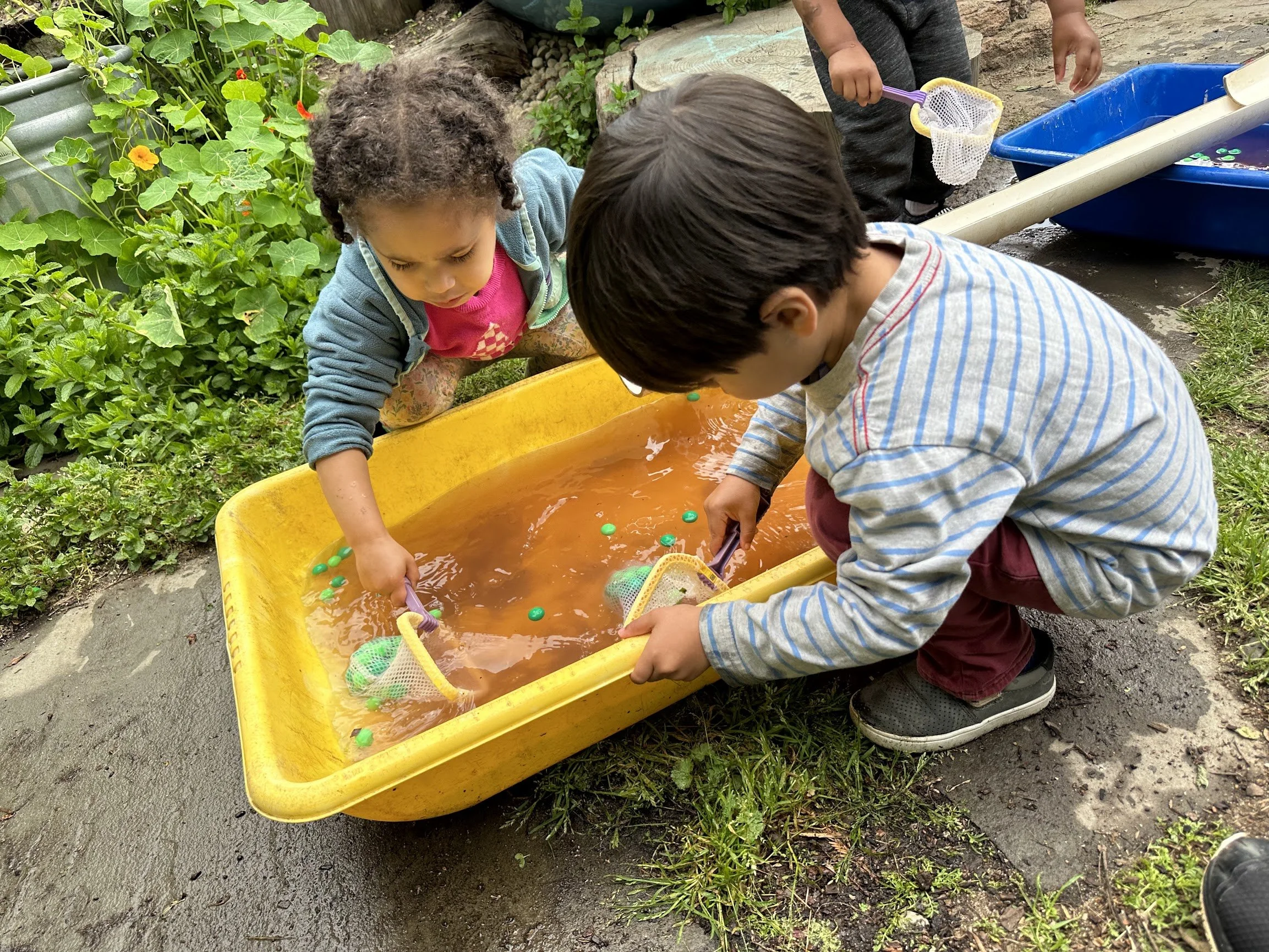
Play-based Preschool or TK
Deciding on the best early education path for your 4 year old? Wondering about the differences between preschools like CCC and Transitional Kindergarten (TK) for your child turning 4 by September 1st?
With California’s TK expansion, we recognize the significance of making an informed choice that aligns with your family’s needs and values. Read on for details about CCC’s distinctive program and philosophy to assist you in your decision making

CCC believes in the power of play to shape confident, curious learners. Our play-based, child-led approach allows children to take the lead, fostering a love of exploration and discovery. Our thoughtful and intentional curriculum extends both indoors and outdoors, providing a rich environment for academic and social emotional development.
The CCC Difference
How our preschool delivers a different experience than Transitional Kindergarten
Educational Philosophy
CCC: Play-Based, Child-Led Learning
Children learn through hands-on exploration and imagination. Teachers follow children’s interests, fostering curiosity, creativity, and problem-solving through play. See our philosophy in action
TK: Kindergarten Preparation
TK focuses on preparing children for academic readiness and structured learning environments, often following more standardized goals and routines.
Classroom Experience
CCC
Child-initiated, open-ended play indoors and outdoors. Explore our campus
Long, uninterrupted blocks of playtime
Small, mixed-age classrooms that promote leadership and mentorship
Emphasis on joy, discovery, and social-emotional growth
TK
Teacher-led lessons aligned with state standards
Structured schedules with limited free play
Larger class sizes (typically 22–24 students per teacher)
Focus on early academics such as letters and numbers
Program Structure
CCC
Two-year program for ages 3–5, allowing older preschoolers to become leaders
Optional extended-day program for working families
Adult-to-child ratios as low as 1:4 in the morning program and 1:7 for extended care program
Cooperative model: parents participate and receive child development education
TK
One-year, school district–based program for age-eligible 4-year-olds
Half- or partial-day schedule; limited access to aftercare
Standard public school ratios (1 teacher per 22–24 students)
No parent participation component
Social & Emotional Learning
CCC
Strong focus on communication, cooperation, and conflict resolution
Anti-bias curriculum that celebrates identity and fairness
Children learn to name feelings, listen to peers, and stand up to exclusion
TK
Emphasizes classroom readiness and following routines
Social-emotional learning varies by school and teacher
Academic Exploration
CCC
CCC teachers are dedicated to designing innovative curriculum that is not only inspired by children but actively involves them in shaping their own educational journey.
Literacy-rich environment with storytelling, writing tables, and curated libraries
Math and science concepts introduced through hands-on play, gardening, and experimentation
Learning emerges from children’s interests — cooking, map making, building, and more
TK
Structured introduction to reading, writing, and math skills
Lessons designed to align with kindergarten standards
Community & Family Connection
CCC
Deep parent involvement and shared decision-making
Families form lasting friendships through co-op participation
Teachers and caregivers collaborate closely on each child’s growth
TK
Drop-off model with minimal parent involvement
Families engage primarily through school-wide events or PTA
Child-led Learning
Recent Curriculum Inspired By and Tailored to CCC Students:
CCC children are not just the audience but also playwrights and directors, creating their own plays that showcase their boundless creativity and imagination.
Personalized self-portraits where each child artist explores their identity by crafting their own paint, tailored to match their skin tone.
Published books of art and dictated stories, celebrating the unique voice of every child.
Robot making that fosters problem-solving skills.
Culinary adventures following recipes to make delectable treats like zucchini bread, cranberry sauce and homemade playdough.
Map making and treasure hunts to enhance spatial awareness and foundational concepts of geography.
Child initiated theme days providing the opportunity to explore self expression.
Oral storytelling that incorporates episodic stories that unfold over time, captivating students’ imaginations and engaging them for months,enhancing language development and a deep appreciation for narrative and sequential thinking.
Field trips to explore the world beyond.
